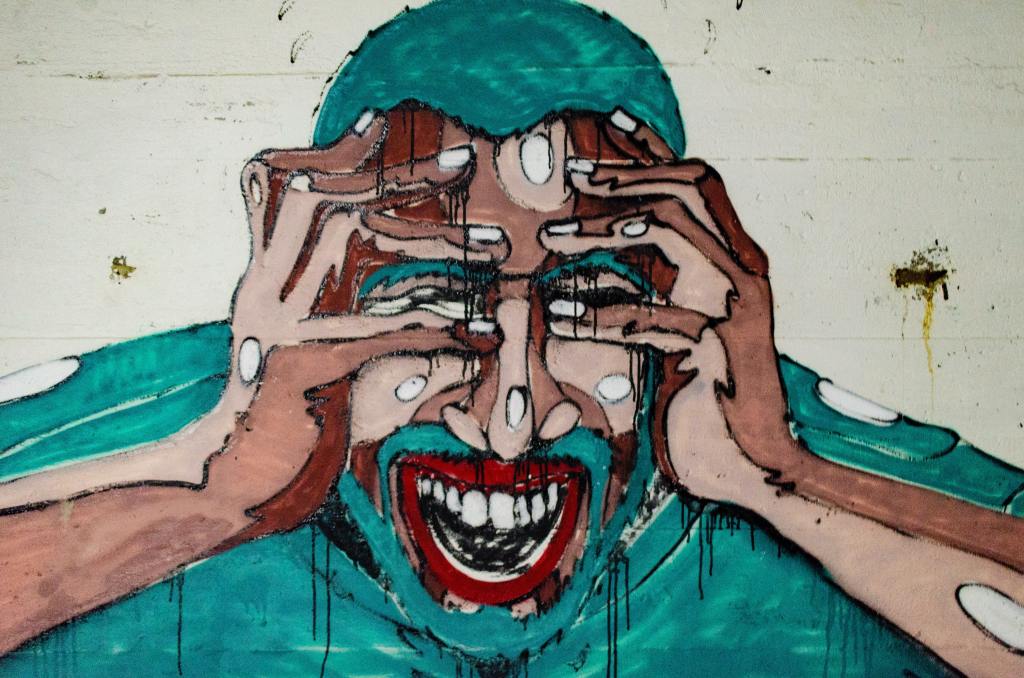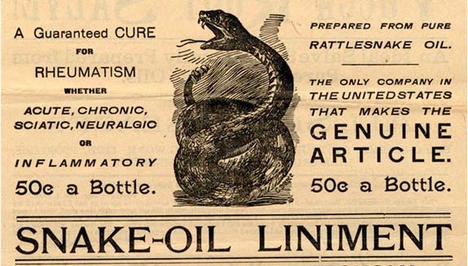
It’s hard to access routine healthcare – or most healthcare – in the US. Looking for great healthcare? Better have be over 65, in the military medical system, or so impoverished you probably live in a healthcare desert. Or you could be fantastically rich so that none of the regular rules and limitations apply to you in daily life anyway.
Going on Year 6 here in Italy, and while I won’t claim that our experience with Italian healthcare has been perfect (opaque bureaucracy, difficulty getting clear answers about enrolling in healthcare on an annual basis), I sleep easier every night knowing that a healthcare crisis in the family, heaven forbid one should occur, will neither sink or bankrupt our family. I’m an eyewitness to the fact that a universal healthcare system holds down all costs in the market, because no market exists for a $5,000.00 routine diagnostic MRI. Even purported outlandish costs that Italians decry rarely top a few hundred euros. We pay a small annual out of pocket expense, and nominal – nominal – co-pays, along the lines of €25 for an x-ray, €75 for a thorough blood panel (I’ve done both this year).
An excellent piece that ran in the LA Times five years ago about an American who had a major healthcare crisis in France (similar system to Italian healthcare) still sticks in my mind. The man’s total bill was €1300 and included heart surgery, a hospital stay, and weeks of residential occupational therapy. Even if the dark cloud of a health calamity were to roll over our little family this year, the cost would form the least of our worries. When health is fragile, survival odds do not improve by running laps in a maze of healthcare, filling out personal data forms at every turn. Americans know this. It really sucks. But it’s been so long since we’ve experienced it any other way, if ever, that the extent of our imagination lags far behind our moral indignation. Compounded by the fact that modern (maybe even historic) American culture breeds anxiety (for which adults are medicated), ADD, ADHD, and hyperactivity (for which children are medicated), to the point that American dogs are on doggie Prozac (more on that in a later post), and America is in a perfect storm.
Anxiety and unrest at every turn. Insomnia. Fill out the form: name, DOB, residential address, are you the principal policy holder or a dependent? Symptoms go unreported and undiagnosed for months or years until illness has progressed too far to be meaningfully treated. (I’ve discussed this phenomenon in this space in my piece on PTAHSSS – Post-Traumatic American Healthcare System Survivor Syndrome.) The spectre of looming medical bills is just too much for any family individual to calmly confront. It’s the main reason so many Americans work, work, work to make more money. How much? We don’t know, but given the uncontrolled and unmitigated disasters that lurk in virtually every life intersection, it had better be a lot, then a whole lot, then you know what? Double that. I have so many examples of this from my personal life, and am grateful that we survived them all, but the American healthcare system’s odds were not on our side. The house always wins, and the quarterly profits of health insurance providers get paraded about without so much as a peep from the population. This is not right. It is not fair. It is certainly unhealthy.
About fifteen or twenty years ago, the Sackler family knew that people would not complain if their symptoms were addressed. Hell, people will thank you for helping them. Their pharmaceutical laboratories came up with a slow-release opioid. Not opium, not morphine, but Oxycontin – all the better for its pilly portability. And profitable thanks to the addictions that take root in the body and mind when a person suffers pain from which there is no escape. The Sacklers became so wealthy from this clever bit of marketing in a blue-ocean market of “pain management” that they remain effectively immune from legal action to this day.
In American, it is hard to obtain the reliable treatment of the causes of disease. If you’re lucky you might get the symptoms addressed. This is particularly true for women, the working class, working poor, and anyone of color. into this scene enters the handmaiden of opioid addiction – the American pain clinic. In 2014 The New Yorker ran a superb essay by Rachel Aviv on pain management and pain clinics in the U.S. I had firsthand experience of this in Oklahoma when we lived there the last time, and can attest that those doctors handed out Lortabs like they were candy corn at the second-grade Halloween party. I dated a man in the nineties who used to drop them from his jeans pockets like jellybeans. By the time we left Oklahoma in 2016, I had a cupboard of hydrocodone that I didn’t know what to do with. I was never going to take it all. I don’t even know why I filled the scrips, except that I was given a scrip to fill, so I filled it. We dropped all the expired pills off at a pharmacy before we left. I vaguely remember Oklahoma was on a list of states that prescribed the most opioids per capita a few years ago. It was tough to find a good GP in the state. My memories consist of physicians browsing WebMD in the examination room and patriarchal obgyns. My nurse midwives were good, minus one who often brought Jesus into my prenatal appointments. One very young, kind surgeon saved my life in 2009, and for him I’m forever grateful. But he was an exception. I had a great doctor once for about two months, a woman originally from Pakistan, but she moved to New York.
To my point. In America, it’s so difficult first, to access healthcare, second, to budget for it, and third, to even know how much it costs, that the cultural current carries people to seek out accessible solutions. Easily obtained prescription opioids became one of those solutions for about a decade, until people started to notice how many people were addicted, transitioning to heroin, overdosing, and dying. It’s funny how American news coverage of the opioid abuse epidemic almost never mentioned how American this whole problem is. Show me another country that is having an opioid epidemic.
Well, you know what, why don’t we just legalize marijuana. That should solve quite a few problems, and the tax receipts are mad robust! Legalization has swept America in the last five years or so. Jason said I wouldn’t even recognize the place for the grand Weedtown it’s become. (I haven’t been back since 2018.) I’m all for legalization and recreational use, but I also believe that people should be able to access the healthcare – including the mental healthcare – that they need, rather than reaching to medicate and soothe themselves with a less-than-ideal remedy, given the struggle they’re experiencing. America, the birthplace of AA and the home of the temperance movement. Show me another country that is having a wave of legislation to legalize marijuana. Don’t get me wrong – people should be able to recreationally use whatever they want to put in their bodies – but if they’re putting those things into their bodies because they are seeking relief from pain, anxiety, or depression, then we have a problem. It’s not going to work out very well.
The US FDA classifies drugs based on the American economy and culture of healthcare. Alcohol is practically a pillar of the economy; it’s going nowhere. Ditto caffeine. Nicotine started getting the boot about twenty-five years ago when the social cost of tobacco-related disease was acknowledged and Big Tobacco got taken to the cleaners. American culture, on many levels, knows that its healthcare system and culture are dysfunctional, so in comes a different set of rules about marijuana. Recent studies about the effectiveness of MDMA on post-traumatic stress patients will likely rewrite those rules. And mescaline and psilocybin will soon be in the pipeline in the Universal Church of LSD and similar organizations as we attempt to address our fractured communities and collective sense of fragmentation and dissociation by gathering together to trip and bond in a safe space. I think it will happen. I will love to see Justice Alito’s face when he is forced to come down on the side of the Universal Church of LSD in the name of religious rights. War on Drugs, pah. It’s all politics.
I’ve recently written about the endemic anxiety in American culture, and how the American social contract forces us to accept a very high level of external anxiety (thanks to availability/affordability of housing, education, healthcare, childcare, retirement, and stability in general.) American culture ties people in knots without access to medical care because it’s blocked, and any fool knows that a stressed body and mind becomes a sick body and mind. Humans have not evolved to live like this. It’s not sustainable.
Unfortunately, Americans learn to mistrust a for-profit medical system, and few trust doctors. Maybe every now and again one finds a good one, at the right time, like I did, to scrape out my burst appendix. But physicians, inaccessible and harried, often work behind layers and layers of front-office administrative bureaucracy. The American culture that encourages self-diagnosis and treatment in an anxiety-addled environment is part of what brought us to a pretty pass with the pandemic. Ivermectin, why not? Ten years ago it was off-scrip opioids, five years ago it was legalized weed. The fearful and unsupported say that vaccines don’t work, the government is trying to microchip you, it’s a ruse, trust no one. The spurious snake oil salesman of the American 19th century comes to mind. Snake oil is sold where a profit is possible. No profit? Good information? Oh. No snake oil sold.

Solutions in America run downhill like water: where there is an obstacle, the water will simply change course, and everyone will praise the problem-solvers. (See: bulletproof backpacks; solar tents for homeless people; other ridiculous solutions to an otherwise solvable problem) I wish – always – that it wasn’t a peculiar ingenuity of the American system to create an impossible maze of reality, then gaslight its citizens into blaming themselves when “things don’t work out.” Or people die. Like 700,00 people from coronavirus, or 841,00 people from overdoses since 1999 (CDC). I wish America had universal healthcare so that basic needs could be met, and the water wouldn’t have to run around obstacles to find other solutions downstream that simply don’t constitute a sensible response to an identifiable problem.
Maybe next time I’ll talk about why America can’t inaugurate universal healthcare for all. Yet.




One Response
Thanks for this posting, Monica. Spot-on in my book. American health care, to the degree that “care” is included, as always driven me crazy.
I feel so fortunate that my experience with CoVid and the other health issue took place in Italy, not the US.
A presto,
Nevin
Sent from my iPhone